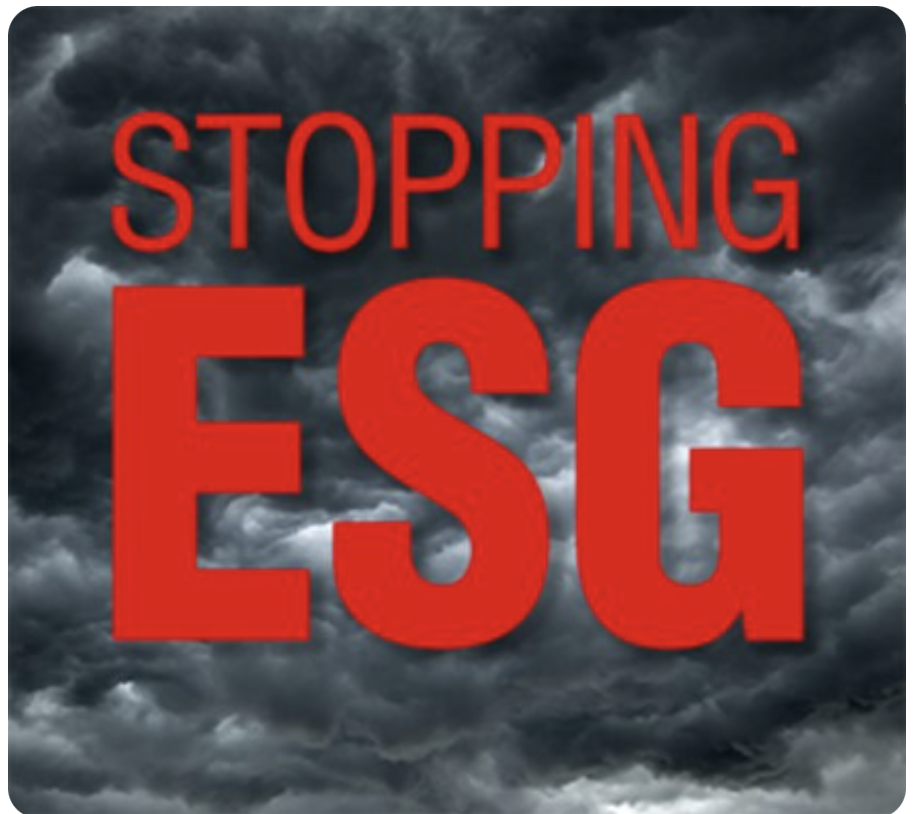Legislation in the Ohio House of Representatives, the Fair Access to Financial Services Act (HB 4), would combat environmental, social and governance (ESG) scoring regimes by ensuring that taxpayer dollars do not fund commercial boycotts that reduce economic growth, cause job losses, and shrink Ohio’s tax base.
ESG scores are essentially a risk assessment mechanism increasingly being used by investment firms and financial institutions that forces large and small companies to focus upon politically motivated, subjective goals which often run counter to their financial interests and the interests of their customers. Companies are graded on these mandated commitments to promote, for example, climate or social justice objectives. Those that score poorly are punished by divestment, reduced access to credit and capital, and a refusal from state and municipal governments to contract with them.
To combat this, the Fair Access to Financial Services Act requires the state treasurer to “identify companies and financial institutions that engage in economic boycotts,” and “create a list of these companies and financial institutions and make the list available to the public,” and which government entities from consulting before they acquire “direct or indirect holdings in, or entering into a contract with.” Companies and financial institutions that contract with any entity of the state government must also affirm that they “do not, and will not, engage in an economic boycott.”
Under the terms of the bill, an economic boycott occurs when “a company or financial institution refuses to deal with, terminates business activities with, or otherwise takes any action that is intended to penalize, inflict economic harm on, limit commercial relations with, or change or limit the activities of another company or a consumer.”
These activities include “the legal exploration, production, utilization, transportation, distribution, sale, or manufacturing of fossil fuel-based energy, timber, mining, lumber, or agriculture; the utilization of the ordinary business purposes of a knife entity, firearm entity, or trade association; a contract with the U.S. Immigration and Customs Enforcement (ICE).” Also included under the terms are companies that do not meet “environmental standards or disclosure criteria, in particular criteria intended to eliminate, reduce, offset, or disclose greenhouse gas emissions; or employment composition, compensation, or disclosure criteria that incorporates characteristics that exceed applicable requirements under state or federal law relating to employment discrimination.”
Buckeye State lawmakers would be well advised to understand the impact that ESG investing has not only on its pensioners but on the very industries that are central to Ohio’s economy. As Heritage Action for America notes, these institutions are targeting key Ohio industries like fossil fuel production, by “pressuring electric utilities to phase-out gas and coal power by 2040, while natural gas and coal provide over 80% of Ohio’s electricity.”
Critics of anti-ESG legislation have charged that bills such as the Fair Access to Financial Services Act distort the free market and could possibly lower a state’s credit rating. However, the true distortion is being perpetrated by those seeking to use the financial agencies as a de facto governmental regulator. By allowing ESG to gain a foothold in Ohio, Buckeye State legislators would be perpetuating this distorted marketplace, and nothing in the bill forces Iowa fiduciaries to use uneconomical investment options.
The collusion of corporations and institutions to boycott, divest from, or sanction any industry only hurts Ohio consumers and shareholders and could affect the long-term economic health of the state’s economy. By clarifying the fiduciary duties of Ohio’s pension fund managers by ensuring state funds don’t go to entities participating in and funding commercial boycotts, and by insisting that maximizing the return on investment for clients be their only guiding principle, Ohio legislators can help ensure the long-term fiscal health of both the Buckeye State’s pension systems and economy as a whole.
The following documents provide more information about ESG.
Environmental, Social, and Governance (ESG) Scores: A Threat to Individual Liberty, Free Markets, and the U.S. Economy
https://heartland.org/wp-content/uploads/2023/04/2023-ESG-ReportvWeb-2.pdf
This policy paper by Heartland Institute research fellow Jack McPherrin provides a comprehensive overview of ESG and proposes specific policy recommendations to counteract ESG’s insidious influence.
ESG: A Simple Breakdown of its Components
https://heartland.org/wp-content/uploads/2022/12/PolicyTipSheetESG1.pdf
This Heartland Institute Policy Tip Sheet provides a brief description of each of the three categories comprising a company’s risk assessment based upon ESG metrics, using one of the most commonly used ESG frameworks developed by the International Business Council.
ESG: Financial Discrimination
https://heartland.org/wp-content/uploads/documents/PolicyTipSheetESG8src.pdf
This Heartland Institute Policy Tip Sheet discusses financial institutions’ discriminatory practices against consumers, and explains proposed solutions to the problem.
ESG: The Banking Industry
https://heartland.org/wp-content/uploads/documents/PolicyTipSheetESG7src.pdf
This Heartland Institute Policy Tip Sheet briefly summarizes how the banking industry has used its coercive market power to weaponize ESG compliance.
ESG: Central Bank Digital Currencies
https://heartland.org/wp-content/uploads/documents/PolicyTipSheetESG6.pdf
This Heartland Institute Policy Tip Sheet provides a brief summary of central bank digital currencies (CBDCs) and how they can be wielded against society to enforce ESG compliance.
ESG: Negative Effects on Food Supply and Agriculture
https://heartland.org/wp-content/uploads/documents/PolicyTipSheetESG5.pdf
This Heartland Institute Policy Tip Sheet provides a brief summary of how ESG is being weaponized against farmers, food production, and the agricultural industry as a whole.
ESG: The Effects Upon Free Markets
https://heartland.org/wp-content/uploads/documents/PolicyTipSheetESG3.pdf
This Heartland Institute Policy Tip Sheet offers a brief description of how ESG systems fundamentally alter free markets and the natural equilibrium of supply and demand.
ESG: The Role of the U.S. Securities and Exchange Commission
https://heartland.org/wp-content/uploads/documents/PolicyTipSheetESG2.pdf
This Heartland Institute Policy Tip Sheet offers a brief description of the role of the U.S. Securities and Exchange Commission (SEC) in coercing companies into ESG compliance.
Heartland Impact is the new advocacy and outreach arm of The Heartland Institute.
Heartland Impact specializes on providing state lawmakers the policy and advocacy resources to advance free-market policies towards broad-based economic prosperity. This document does not necessarily represent the views of The Heartland Institute.
Heartland Impact can send an expert to your state to testify or brief your caucus; host an event in your state; or send you further information on a topic. Please don’t hesitate to contact us if we can be of assistance! If you have any questions or comments, contact Cameron Sholty, at csholty@heartlandimpact.org or 312/377-4000.


